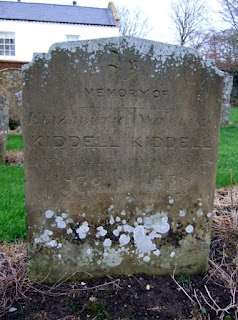Spirituality in the 21
st Century context is less about ‘spirituality’ or being ‘spirit filled’
and is increasingly more about ‘feeling good’ in an instantaneous sort of way. Spirituality is currently about turning a fractured world into ‘fluffy’ world often inspired by Disney cartoons and “Hallmark Moments”.
 |
The East End
Necton Parish Church
© Godric Godricson
|
Contemporary spirituality is often without a real understanding of life and even death. I am not in any way advocating a return to medieval pessimism or the ‘momenti mori’; instead, I am suggesting a Western spirituality that is socially progressive, hopeful for the future and realistically focused on our own mortality. Traditional certainties have to be available to people as a rock on which to build their lives. Most of all,
I believe that hope must be given back to a fractured and confused Western world that is battered by financial insecurity.
In my assessment of the problem, I see many confused people who believe that spirituality is quickly attainable; available on a shelf and that it is something that has little personal cost. This is what may be seen as the ‘self-help’ sort of spirituality that one finds in Ottaker’s (other bookshops are also available). The ‘quick fix’ spiritual journey on offer may be Buddhist or ‘new-age’ in nature or from other traditions and may adopt values that are very far from traditional. However, in such contexts ‘spirituality’ rarely has reference to a Christian conception of God. I want to say at this point that I have no hang-ups about other world religions or denominations and I believe that they all have their way of leading people from the darkness and into the light.
 |
18th and 19th Century monuments Necton
Parish Church
© Godric Godricson
|
To be explicit, I am not making an exclusive case for positive spiritual experiences within the context of Christianity in isolation. I freely acknowledge that there is always a place to explore experience and wisdom from other traditions. I also know of people who are not at all consciously religious who exude a sense of spiritual serenity and
they manifest a certainty about the future which is comforting and also calming but this is to confuse matters further. I have a colleague in secular employment who denies any faith in religion who has the effect of immediately dropping my blood pressure when she speaks.
I suspect that she
is a natural healer if she only understood that role within herself. However, healing, feeling good and self-help are not the same as spirituality.
In some ways; people now ignore Western spirituality and a recognition of mortality and immediately look to the
Far East for a spiritual dimension in their lives. We find images in John Lewis indicating where feelings, hopes and expectations focus in the matter of spirituality. Perhaps 100 years ago people in
England may have ‘crossed the
Tiber’ when they considered spirituality and their own mortality or even made the journey towards Orthodoxy when they considered a spiritual direction. The direction is clearly much further East
. If Western people visited local cemeteries a little more then we would have a more focused and centered sense of ourselves and our mortality. In a collective recognition of a finite lifespan we may come to a sort of serenity rather than internal panic when faced by a fractured world.
 |
Saint Withburga East Dereham
© Godric Godricson
|
Yet, traditional Christian spirituality and a recognition of mortality is alive if not completely well.
Whilst not encapsulating the whole Christian message we can see that Catholic spirituality as one facet of Christianity is set within a strong context replete with history, prayer, hymns, meditations, art and sculpture. Similarly, the Church of England has a tradition that often utilises ‘smells and bells’, as part of a rich, diverse and musical
liturgy. We also have a British Orthodox Church linked to the Copts of Alexandria. All of this rich and diverse heritage is already in the
UK and evidences a truly and home grown traditional spirituality.
However, for many people the Church has no contemporary relevance and I perceive the major denominations as failing in leadership and a failure to take socially progressive measures in good time. The ancient role of the Church has been eroded by time and denominations have failed to make themselves relevant in the 21st Century. Denominations have many of the traditional tools to educate, entertain and inspire hope in society and yet they haven’t used those tools. The Churches remain locked and the cemeteries are no longer places of burial, spiritual refection and meditation.
 |
East Lexham Parish Church
© Godric Godricson
|
I continue to reflect on the Churches collective failure to inspire, educate and give hope to the whole people. They have jointly failed to use the traditional resources open to them to create hope in the future and in this omission they have opened up routes towards communal doubt and fear. This doubt and fear in the future is evident in the tendency of the British people to give themselves up to cremation and to a cosmopolitan spiritual supermarket. Where we once gave our mortal remains to the Church to lie in the Earth in the hope of eternity; we now give our bodies to the remorseless crematorium and in this process we collectively pollute the air.
Perhaps it is the idea of hope that has suffered most in the past two or three years as a result of the economic crisis and perhaps hope is something that has to be re-introduced into the spiritual life of England in the coming months. Perhaps a realistic, traditional sense of hope in the future tempered by the reality of mortality is the starting point for a resurgence of a happy and cohesive people.







